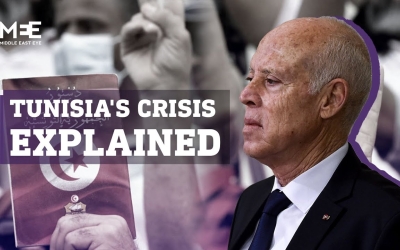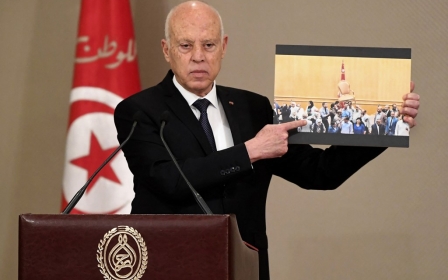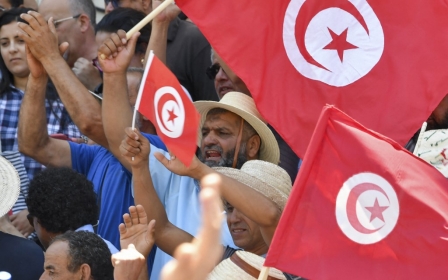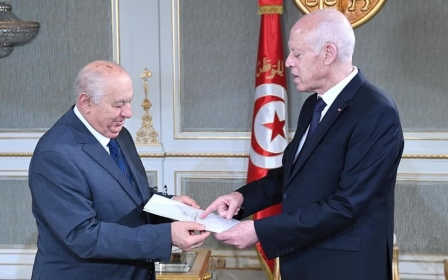Tunisia: Kais Saied urges voters to support controversial constitution
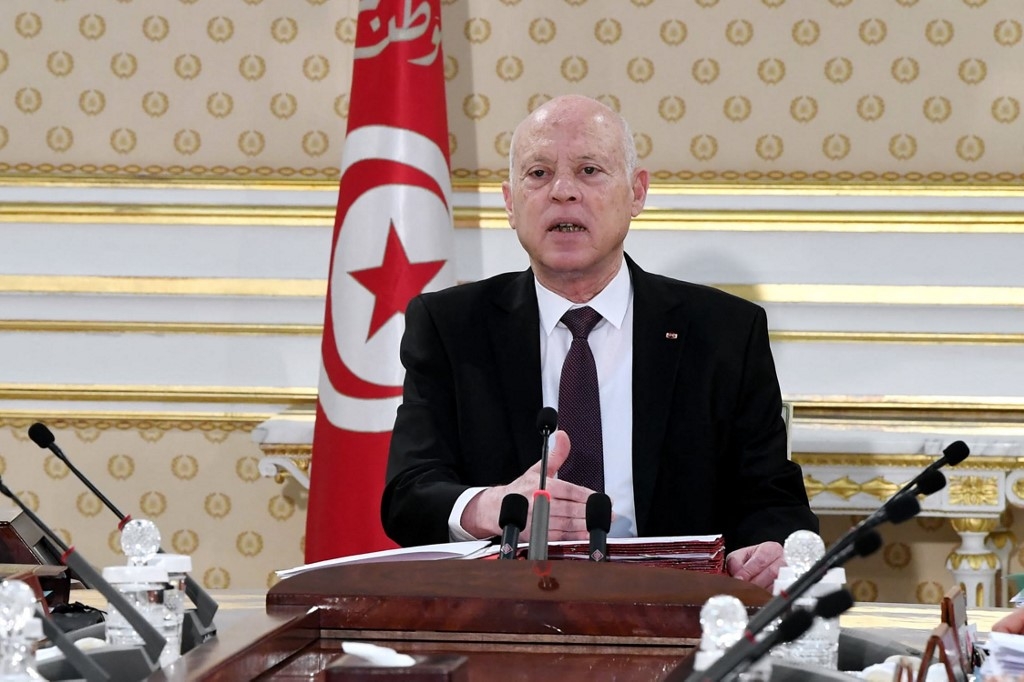
Tunisia's President Kais Saied has urged citizens to vote in favour of the new constitution, which is set for a referendum on 25 July, if they want to live a life where there is "no misery, nor terrorism".
In a three-page letter tweeted by the Tunisian presidency's official account, Saied told Tunisians "to say Yes, so that the state does not fall into old age, so that the goals of the revolution are achieved. So there is no misery, no terrorism, no starvation, no injustice, no pain."
'Say Yes, so that the state does not fall into old age, so that the goals of the revolution are achieved'
- Kais Saied, Tunisian president
Saied blamed "others," without naming them, for emptying the coffers of the state to the point where "the poor became poorer and more destitute," while others accumulated immense wealth.
He said that Tunisians were disappointed by seeing Tunisia sinking in economic despair and fierce political competition over the past 10 years.
"It was necessary to think seriously about drafting a new constitution," he said, adding that this project was not launched "except on the basis of what the Tunisian people expressed since the outbreak of the revolution" in 2011.
"This project presented to you, sons of our great people, is from the spirit of the revolution and the spirit of the path of correction, and there is no fear for a people who gave thousands of martyrs and wounded, and echoed its historic slogan, 'The people want,'" he claimed.
Saied's letter comes after Sadeq Belaid, the head of the committee that drafted the new constitution, withdrew support for the charter.
Belaid warned on Sunday that Tunisia's new charter had changed into a text that could lead to a "dictatorial regime".
"It has nothing to do with the text we drafted and submitted to the president," he Belaid.
One-man rule
Saied has ruled by decree since last summer, when he brushed aside parliament and the democratic 2014 constitution in a step his foes called a coup, moving towards "one-man rule" and vowing to remake the political system.
Political parties have rejected calls for a vote on a new constitution. The Salvation Front, an umbrella of opposition parties, said that Saied is paving the way to send Tunisia back to "absolute autocracy".
"The proposed draft constitution represents an apostasy that threatens to return the country to the absolute autocracy from which Tunisia suffered for more than five decades until the 14 December-14 January [2011] revolution which came to establish a rule based on the separation of powers which promoted freedoms and guaranteed right," the opposition group said in a statement.
The new draft constitution introduces a presidential system of government in a departure from the mixed presidential-parliamentary system enshrined in the 2014 constitution.
Whereas the 2014 charter was written by a constituent assembly elected in the wake of the revolution, Saied's draft has been worked on by a committee he handpicked in a process decried by many politicians and constitutional experts as undemocratic.
The draft constitution published in the official gazette last week would bring most political power under Saied, giving him ultimate authority over the government and judiciary.
Saied would be allowed to present draft laws, have sole responsibility for proposing treaties and drafting state budgets, appoint or remove government ministers and appoint judges.
Since his power grab last summer, Saied has imposed numerous controversial measures including suspending parliament, shutting down the country's independent anti-corruption body, and sidelining the national election authority.
In early February, he dissolved the Supreme Judicial Council and granted himself control over the selection and promotion of judges.
Middle East Eye propose une couverture et une analyse indépendantes et incomparables du Moyen-Orient, de l’Afrique du Nord et d’autres régions du monde. Pour en savoir plus sur la reprise de ce contenu et les frais qui s’appliquent, veuillez remplir ce formulaire [en anglais]. Pour en savoir plus sur MEE, cliquez ici [en anglais].


